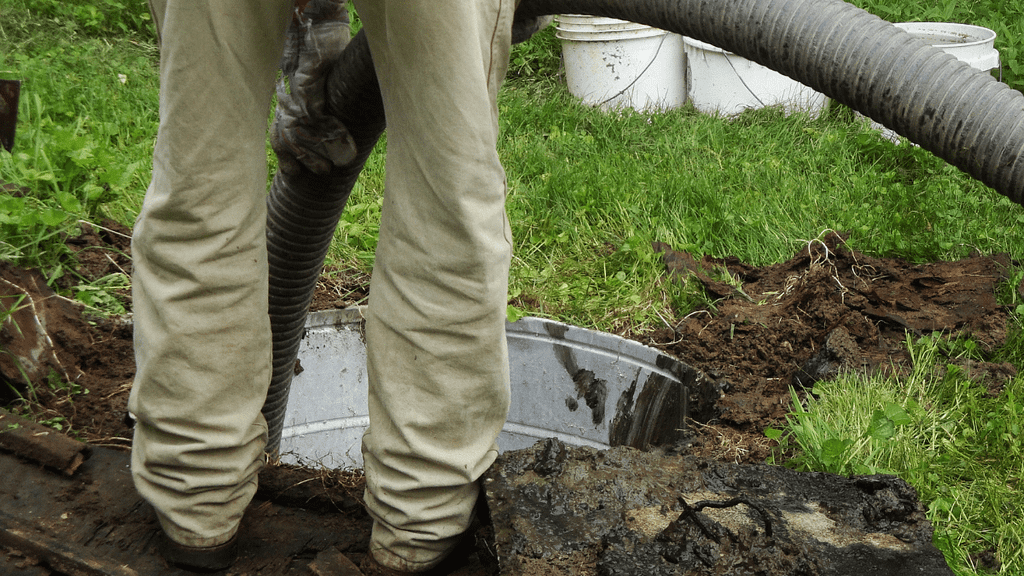Septic systems are essential components for many homes and properties, particularly in rural areas where centralized sewage systems are not available. Understanding how they work and the importance of regular maintenance can help prevent costly repairs and ensure the system operates efficiently for years.
A septic system is an underground wastewater treatment structure that consists of a septic tank and a drain field. These systems are used to treat and dispose of household wastewater generated from bathrooms, kitchen drains, and laundry.
How Does a Septic System Work?
1. Septic Tank
The septic tank is a watertight container typically made of concrete, fiberglass, or polyethylene. It is designed to hold wastewater long enough for solids to settle down to the bottom (forming sludge) while oil and grease float to the top (forming scum). The tank has compartments and a T-shaped outlet to prevent the sludge and scum from leaving the tank and entering the drain field.
2. Drain Field
Also known as a leach field, the drain field is a shallow, covered excavation made in unsaturated soil. The pre-treated wastewater (effluent) is discharged through piping onto porous surfaces that allow wastewater to filter through the soil. The soil treats and disperses the effluent, removing harmful bacteria, viruses, and nutrients.
Importance of Regular Maintenance
Regular maintenance is crucial for the effective operation and longevity of a septic system. Here are several reasons why it is important:
1. Prevents System Failures
Routine inspections and pumping prevent the accumulation of sludge and scum, which can cause system backups or overflows. A failed system can result in untreated sewage surfacing in your yard or backing up into your home, creating health hazards and requiring expensive repairs.
2. Protects Water Quality
A well-maintained septic system prevents contaminants from entering groundwater, which is a source of drinking water for many households. Neglecting maintenance can lead to pollution of nearby water bodies, affecting local ecosystems and potentially causing health issues.
3. Saves Money
While regular pumping and inspections may seem like an additional expense, they are cost-effective in the long run. Maintenance is significantly cheaper than repairing or replacing a failed system. Early detection of potential issues can prevent minor problems from escalating into major, costly repairs.
4. Compliance with Regulations
Many local health departments and environmental agencies have regulations requiring regular septic system inspections and maintenance. Staying compliant not only avoids legal issues but also ensures the health and safety of the community.
Maintenance Tips for Septic Systems
To keep your septic system functioning optimally, consider the following maintenance tips:
- Regular Inspections: Have your system inspected by a professional at least every three years.
- Pump the Tank: Pump your septic tank every three to five years, depending on usage and tank size.
- Conserve Water: Reducing water use can lessen the strain on your septic system. Fix leaks, install high-efficiency fixtures, and spread out laundry loads.
- Proper Disposal: Avoid flushing non-biodegradable items, grease, and harmful chemicals down the drain. They can clog the system and disrupt the bacterial balance necessary for breaking down waste.
- Protect the Drain Field: Do not drive or park vehicles on the drain field. Plant only grass over and near your septic system to avoid roots interfering with the pipes.
Understanding how septic systems work and the importance of regular maintenance can ensure their efficient operation and longevity. By following maintenance guidelines, you can prevent system failures, protect water quality, save money, and comply with regulations. Taking these steps not only safeguards your property but also contributes to the health and well-being of your community.
Regular attention and care for your septic system will provide peace of mind, knowing that your wastewater is being effectively managed and treated.
